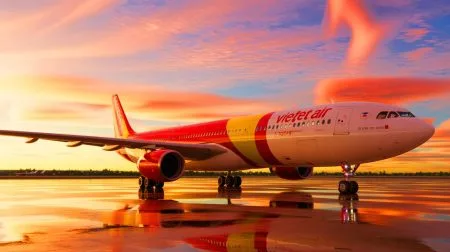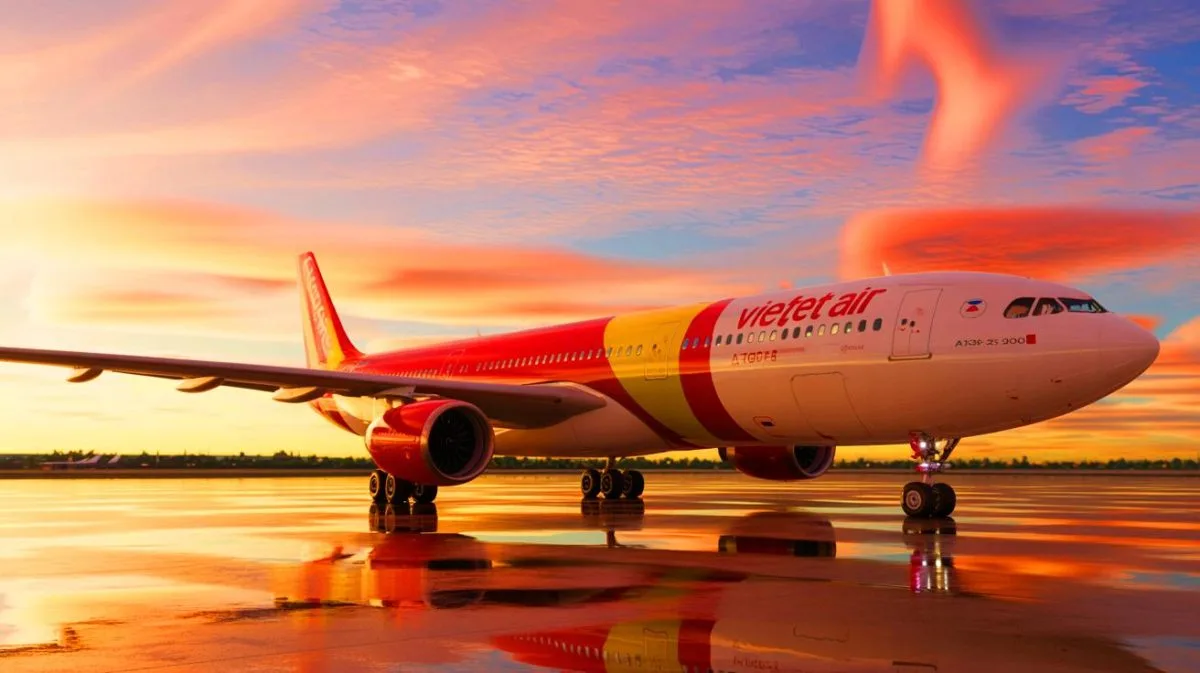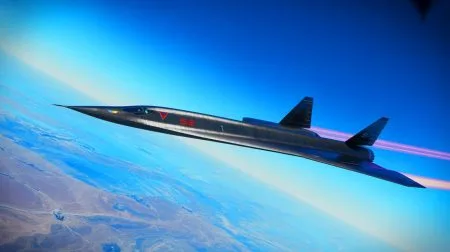| IN A NUTSHELL |
|
Vietjet Air, the Vietnamese low-cost airline, has marked a significant milestone with the acquisition of its eighth Airbus A330-300 aircraft. This newly acquired aircraft, previously operated by the French airline Corsair, symbolizes Vietjet Air’s strategic move to expand its long-haul operations. With this addition, the airline aims to enhance its service network, particularly targeting destinations such as Australia. The acquisition of this 12-year-old aircraft, equipped with Trent 700 engines, forms part of Vietjet’s broader strategy to strengthen its market presence and service offerings in the competitive aviation industry.
Vietjet’s Strategic Fleet Expansion
Vietjet Air’s acquisition of the Airbus A330-300 is a strategic step in its fleet expansion plan. The airline, known for its cost-effective services, has been gradually increasing its capacity to serve more international destinations. By integrating this wide-body aircraft into its fleet, Vietjet is poised to extend its reach, offering more options to its passengers. The decision to lease the aircraft, formerly part of Corsair’s fleet, highlights Vietjet’s pragmatic approach to fleet acquisition, balancing cost and operational capability.
The aircraft’s previous operator, Corsair, had opted for a fleet renewal, transitioning to the newer Airbus A330neo models. This shift provided Vietjet with the opportunity to acquire a well-maintained aircraft suitable for long-haul flights. By leveraging such opportunities, Vietjet can accelerate its expansion plans without the immediate financial burden of purchasing new aircraft. This strategic move aligns with the airline’s goal of becoming a formidable player in the international aviation market.
Impact on Long-Haul Services
The introduction of the A330-300 into Vietjet’s fleet is expected to significantly enhance its long-haul service capabilities. The aircraft’s range and passenger capacity make it ideal for routes connecting Vietnam to distant markets, such as Australia. With this addition, Vietjet can offer more direct flights, reducing travel time and increasing convenience for passengers. The airline’s focus on expanding its long-haul services is a response to growing demand for more diverse travel options from its customer base.
As Vietjet ventures into new markets, it strengthens its competitive position against other carriers in the region. The ability to offer long-haul flights also opens up new revenue streams, contributing to the airline’s financial stability. Vietjet’s emphasis on expanding its long-haul network underscores its commitment to providing comprehensive travel solutions, catering to both leisure and business travelers.
“They Built It to Strike”: US Reveals AI Warship Capable of Unstoppable 1,150-Mile Journey
The Role of Leasing in Fleet Management
Leasing has become a crucial component of fleet management for airlines like Vietjet. By opting to lease the A330-300, Vietjet mitigates the financial risk associated with purchasing aircraft outright. Leasing allows the airline to maintain flexibility in its fleet composition, adapting to changing market demands and operational needs. This approach enables Vietjet to allocate resources efficiently, focusing on expanding its service network and enhancing customer experiences.
Leasing also provides Vietjet with access to modern aircraft without the long-term commitment of ownership. This strategy is particularly beneficial in the dynamic aviation industry, where technological advancements and market trends can rapidly evolve. By maintaining a leased fleet, Vietjet can stay agile, continuously updating its fleet to meet the latest standards and customer expectations.
Future Prospects and Challenges
As Vietjet continues its expansion, it faces both opportunities and challenges. The addition of the A330-300 enhances its competitive edge, but the airline must navigate a complex global aviation landscape. Factors such as fluctuating fuel prices, regulatory changes, and geopolitical tensions can impact operations. Vietjet’s ability to adapt to these challenges will be crucial in sustaining its growth trajectory.
The airline’s focus on long-haul services presents an opportunity to tap into emerging markets and attract a broader customer base. However, success in this arena requires strategic planning and investment in customer service, safety, and operational efficiency. As Vietjet explores new horizons, how will it balance expansion with the need to maintain high standards of service and sustainability?
Did you like it? 4.5/5 (22)







Wow, tickets that cost almost nothing? Is this for real? 🤔
Wow, finally some competition for flights to Australia! 🎉